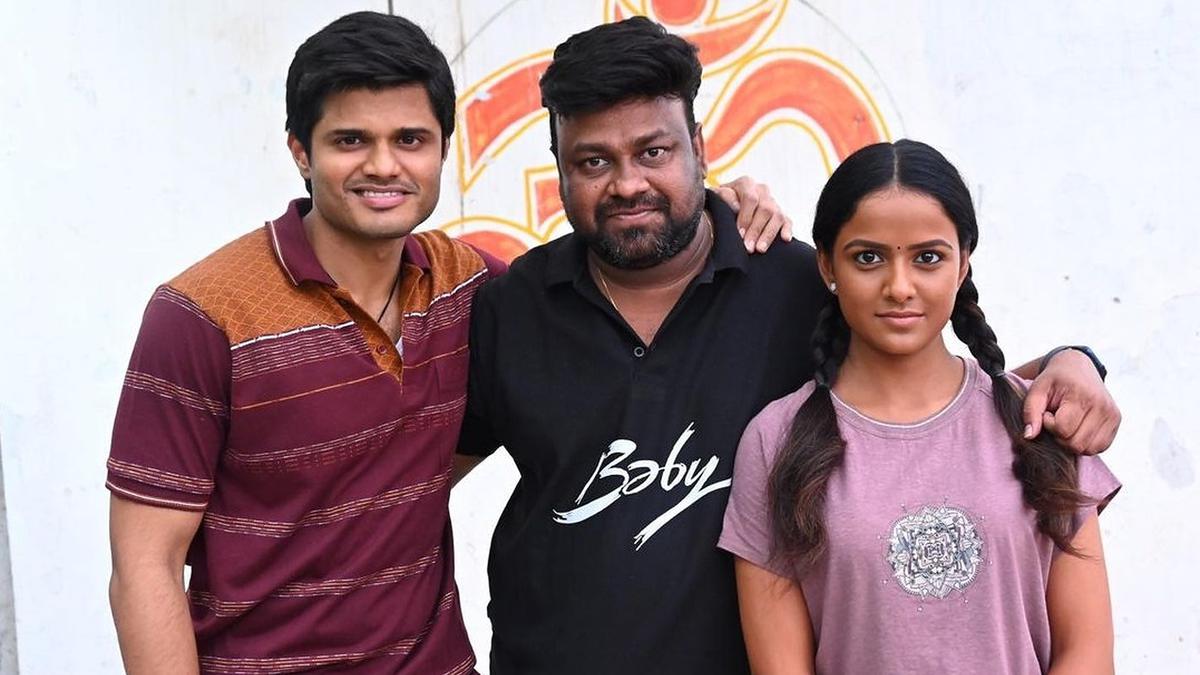
Director Sai Rajesh: ‘Baby’ has been a learning experience; henceforth I will be more cautious in my writing
The Hindu
Baby, a Telugu romantic drama starring Anand Deverakonda, Vaishnavi Chaitanya and Viraj Ashwin, has stirred debate on gender sensitivity since its release. Writer/director Sai Rajesh takes stock of the reactions in a post-release interview.
The Telugu romantic drama Baby, starring Anand Deverakonda, Vaishnavi Chaitanya and Viraj Ashwin, has opened a can of worms ever since its release in theatres on July 14. Written and directed by Sai Rajesh, who had earlier written the story for Colour Photo, the film narrates the story of grey central characters. While the film is running to packed houses, it has stirred a debate on gender sensitivity.
In this interview with The Hindu in Hyderabad, Sai Rajesh takes stock of the reactions. Edited excerpts from the conversation:
I expected certain scenes to be controversial, but I certainly did not anticipate extreme reactions. Though Baby is minting money (₹31 crores worldwide gross in four days, according to the production house), I am unable to enjoy its success. I was concerned whether Vaishnavi’s character would be interpreted wrongly and I thought I had taken enough care in the writing of the characters. But the reactions in theatres have turned out to be a learning process. For my next film, I will be more cautious.
During the preview, I was shocked when the audience began clapping and cheering when Anand’s character uses the ‘l’ word (a cussword in Telugu) against Vaishnavi. She retaliates a few minutes later, in another scene, and makes him realise how much he has hurt her. I thought people would clap for that scene, but there was pin-drop silence. If I have done something wrong as a writer and director, I would like to state that it was never intentional.
I cannot speak for others but I would like to be socially responsible. I wrote Vaishnavi’s character to show how a girl who grew up in a basti (slum) tries out new things in an attempt to gel with the rich kids. There are scenes, particularly the one on the foot over the bridge towards the end, where she pours her heart out. Anand and Viraj’s characters are deeply flawed. Anand tries to control Vaishnavi, and says the most hurtful things to her, which in turn makes her do something she will repent later and have further consequences. I don’t know how many people watching the film understand that Anand is a flawed character. I have seen video clips of some of the audience rebuking Vaishnavi and throwing chappals on her posters. That is not the reaction I wanted.
In the Salem incident, a girl was murdered by the two boys she was dating. Vaishnavi’s character in Baby is different. Initially, I was confused about how to build the three characters. K Balachander’s films have had a huge influence on me. He had a way of presenting stories of strong women characters who are considered flawed. A film like Arangetram (Tamil, 1973) would be unthinkable today. I have also been influenced by Balu Mahendra’s films. I filmed the ‘Ribapappa’ song as a tribute to the ‘Raja Raja Cholan’ song (Tamil film Rettai Vaal Kuruvi, 1987). Unlike the popular perception, Arjun Reddy and RX-100 were not my reference points. I am aware of the gender issues in Arjun Reddy. In fact, that is the reason I had a dialogue whereby Vaishnavi calls out Anand’s controlling and aggressive behaviour by asking if he thinks of himself as Arjun Reddy.
I did not want to discuss the film at the writing stage. But I did narrate some of the situations to a few friends who live in the USA and Canada and asked how they would react. I did not have a bound script. The screenplay was written at different stages, even when the film was on floors. I wrote several scenes a day or two before the shoot. But I wouldn’t recommend this method of working to anyone.





















 Run 3 Space | Play Space Running Game
Run 3 Space | Play Space Running Game Traffic Jam 3D | Online Racing Game
Traffic Jam 3D | Online Racing Game Duck Hunt | Play Old Classic Game
Duck Hunt | Play Old Classic Game











